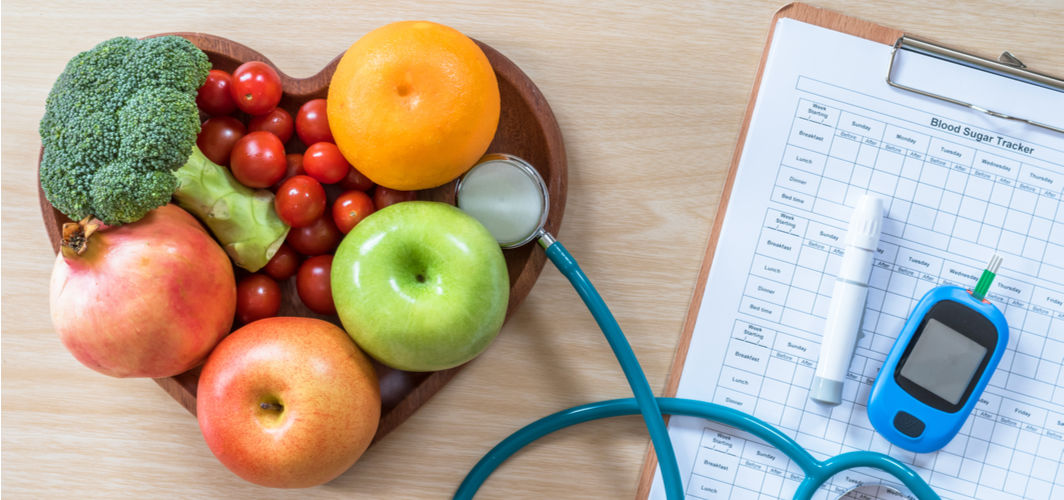Diabetes Management
Tips For Maintaining Healthy Blood Sugar Levels In Summer
2 min read
By Apollo 24|7, Published on - 07 August 2024
Share this article
0
0 like
.jpg?tr=q-80)
Maintaining healthy blood sugar levels is crucial for individuals with diabetes. The summer season can pose challenges for blood sugar management due to increased heat and activity levels. However, with some simple, mindful practices, you can enjoy the summer while keeping your blood sugar levels in check.
Stay Hydrated in the Heat
Hydration is essential during the summer months. Aim to drink 8-10 glasses of water a day to stay hydrated and avoid dehydration-induced high blood sugar. Sugary beverages, alcohol, and caffeinated drinks are best avoided as they can lead to dehydration. Carrying a refillable water bottle will help ensure you always have access to water.
Regular Blood Sugar Monitoring
Heat can affect insulin response, making it necessary to monitor your blood sugar levels more frequently, especially when active outdoors or in the heat. Avoid keeping your meters and test strips in direct sunlight as it could affect their accuracy.
Shield Yourself from the Sun
During summer, prefer wearing light-coloured, loose-fitting clothing that allows your skin to breathe. Excessive sun exposure can increase the risk of sunburn, which can cause stress to the body and affect blood sugar levels. High SPF sunscreen, along with a hat and sunglasses for added protection, is a must while stepping out. Try to avoid being outdoors during the peak sun hours to minimise exposure.
Healthy Eating Habits
Choosing lighter meals like fruits, vegetables, and lean proteins can help manage blood sugar levels during summer. High-fat foods that can cause indigestion are best avoided, as are high-carb options. Consider smaller, more frequent meals to maintain stable blood sugar levels.
Stay Active Safely
To prevent overheating, plan your outdoor activities for the cooler morning or evening hours, and limit outdoor activities during the hottest parts of the day, typically between 10 a.m. and 4 p.m. During these peak heat hours, consider indoor activities like mall walking or swimming to stay active without risking heat exposure. It's important to adjust your insulin and carb intake around exercise as needed. Additionally, make sure to store your insulin properly; in hot weather, insulin is best kept in the fridge to maintain its efficacy. When you're out, carry your insulin in a cool bag, wallet, or pouch.
For structured guidance and support in managing diabetes, consider enrolling in the Apollo Super 6 program. Developed by Apollo's expert doctors, this program provides personalized support and tools to help you effectively manage type 2 diabetes. By participating, you can gain valuable insights and strategies tailored to your needs, ensuring you stay on track with your health goals.
Diabetes Management
Consult Top Diabetologists
View AllLeave Comment
Recommended for you
.png?tr=q-80)
Diabetes Management
Effective Ways to Manage Diabetes and Stress
Effective diabetes and stress management involves regular exercise, mindfulness practices, controlled eating, leisure activities, peer interaction, open communication with loved ones, acknowledging emotions, and seeking professional help when needed. These strategies aid in ensuring your overall well-being while living with diabetes.

Diabetes Management
Explained: The Diabetes and Heart Disease Link
Yes, diabetes can increase the risk of heart disease by affecting the blood vessels and promoting the buildup of plaque. Elevated blood sugar levels can damage the lining of blood vessels, leading to atherosclerosis. Additionally, diabetes is associated with other risk factors like high blood pressure and cholesterol levels, further contributing to heart disease risk.

Diabetes Management
Make These Simple Lifestyle Changes To Lower Your Risk of Diabetes
Reduce diabetes risk: limit refined carbs, choose high-fiber foods, and include lean proteins. Exercise aids weight loss and insulin sensitivity. Shed excess weight, quit smoking, control portions. Embrace a high-fiber diet, ensure enough vitamin D, cut processed foods and sugary drinks. Moderate healthy fats. These steps optimize blood sugar and lower diabetes risk.
Subscribe
Sign up for our free Health Library Daily Newsletter
Get doctor-approved health tips, news, and more.
Visual Stories

8 Fruits That are Incredibly Healthy for Diabetes
Tap to continue exploring
Recommended for you
.png?tr=q-80)
Diabetes Management
Effective Ways to Manage Diabetes and Stress
Effective diabetes and stress management involves regular exercise, mindfulness practices, controlled eating, leisure activities, peer interaction, open communication with loved ones, acknowledging emotions, and seeking professional help when needed. These strategies aid in ensuring your overall well-being while living with diabetes.

Diabetes Management
Explained: The Diabetes and Heart Disease Link
Yes, diabetes can increase the risk of heart disease by affecting the blood vessels and promoting the buildup of plaque. Elevated blood sugar levels can damage the lining of blood vessels, leading to atherosclerosis. Additionally, diabetes is associated with other risk factors like high blood pressure and cholesterol levels, further contributing to heart disease risk.

Diabetes Management
Make These Simple Lifestyle Changes To Lower Your Risk of Diabetes
Reduce diabetes risk: limit refined carbs, choose high-fiber foods, and include lean proteins. Exercise aids weight loss and insulin sensitivity. Shed excess weight, quit smoking, control portions. Embrace a high-fiber diet, ensure enough vitamin D, cut processed foods and sugary drinks. Moderate healthy fats. These steps optimize blood sugar and lower diabetes risk.


